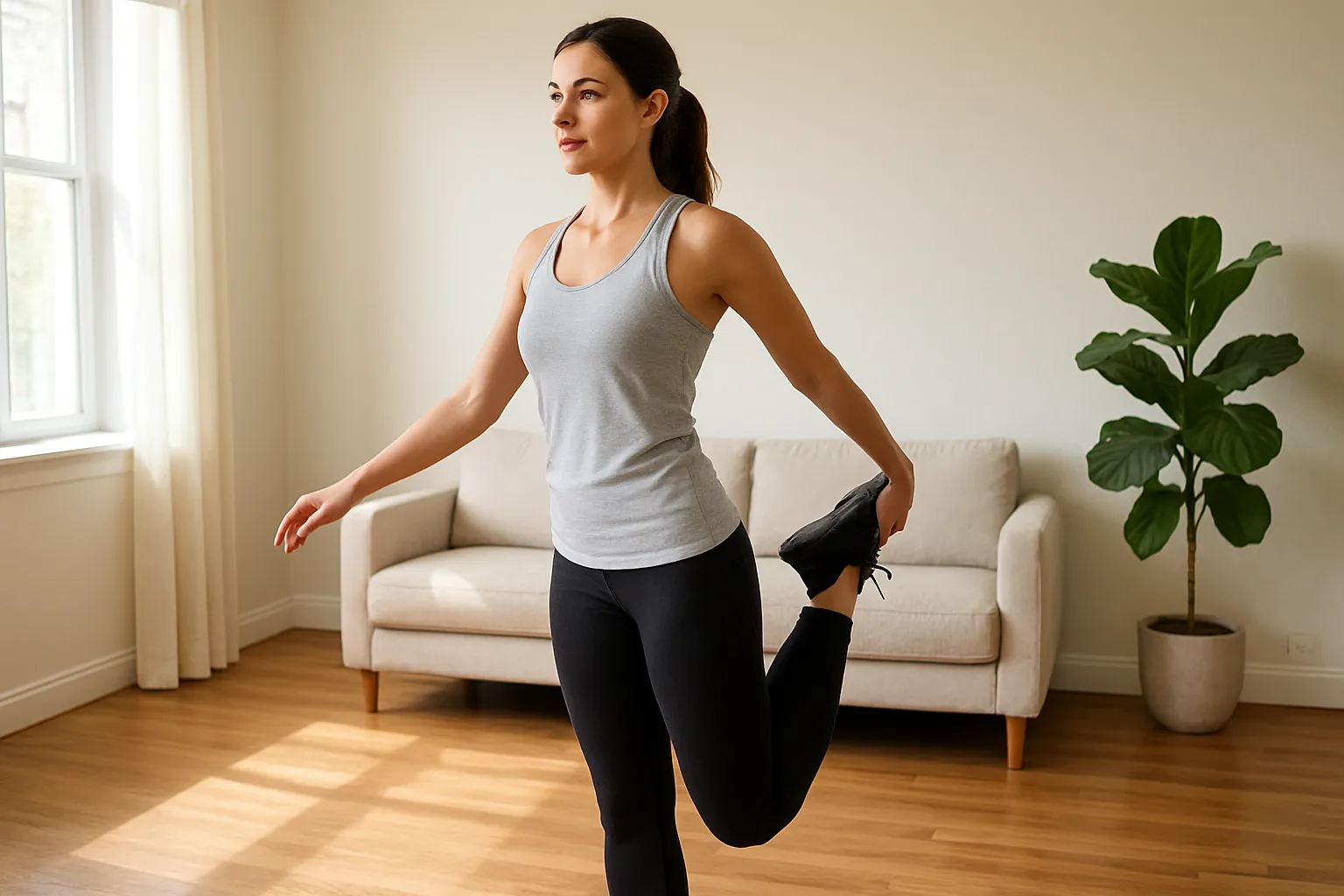When it comes to fitness, one question often stands out: how long should a workout be? With countless opinions and advice floating around, it’s easy to feel overwhelmed. The truth is, the ideal workout duration can vary based on your goals, fitness level, and schedule.
Whether you’re aiming to build strength, improve endurance, or simply stay active, understanding the right length of your workouts can help you maximize results. You don’t need to spend hours in the gym to see progress. Instead, finding a balance that fits your lifestyle and keeps you motivated is key. Let’s dive into what you need to know to tailor your workout duration for optimal success.
Understanding Workout Duration
Workout duration plays a significant role in achieving fitness objectives. It influences your energy levels, motivation, and overall results.
Importance of Workout Length
Workout length impacts your physical performance and recovery. Shorter sessions maintain intensity, while longer workouts can build endurance. For example, high-intensity interval training (HIIT) may last 20-30 minutes, while endurance training typically spans 60 minutes. Balancing these durations ensures you remain engaged and avoid burnout.
Goals and Fitness Levels
Individual goals dictate workout duration. If you’re aiming for weight loss, 150-300 minutes of moderate exercise weekly is effective, according to the Centers for Disease Control and Prevention (CDC). Strength training may require 20-60 minutes per session, focusing on major muscle groups. Personal fitness levels also matter; beginners might start with shorter sessions, gradually increasing duration as endurance improves. Tailoring your workouts to fit individual goals keeps you motivated and on track.
Recommended Workout Lengths
Determining the right workout length depends on the type of exercise, your goals, and your fitness level. Here are some recommendations for different types of workouts.
Cardiovascular Exercise
Cardiovascular workouts typically last between 20 to 60 minutes. For effective results, aim for 150 to 300 minutes of moderate-intensity exercise weekly. Activities like brisk walking, jogging, or cycling can be structured into sessions of 30 minutes or more to enhance heart health and endurance. High-intensity interval training (HIIT) sessions generally require only 20 to 30 minutes due to their intense nature, allowing for efficient fat-burning and cardiovascular improvements in less time.
Strength Training
Strength training sessions often range from 20 to 60 minutes. For maximum effectiveness, complete 2 to 3 sessions per week. Focus on different muscle groups each session to allow for recovery. If you’re a beginner, start with shorter sessions, gradually increasing duration and intensity as strength and endurance develop. Aim for 8 to 12 repetitions per exercise with enough sets to effectively build muscle without excessive fatigue.
Flexibility and Mobility Work
Flexibility and mobility routines should be incorporated into your fitness regimen, lasting 10 to 30 minutes. These sessions enhance overall movement quality and promote recovery. Stretching and mobility exercises can be performed at the end of your workouts or on off days. Regular flexibility training improves your range of motion, reducing injury risk and aiding recovery, ensuring you can maintain consistent workouts.
Factors Influencing Workout Duration
Workout duration varies based on several factors, each contributing to the overall effectiveness of your fitness routine. Understanding these elements helps you tailor your workouts to fit your needs.
Age and Fitness Experience
Age influences both recovery rates and exercise capacity. Younger individuals often handle longer, more intense workouts. Beginners typically benefit from shorter durations of about 20-30 minutes, allowing gradual adaptation. As you gain experience, extending your workouts can enhance endurance and performance, with sessions lasting 30-60 minutes becoming more suitable based on your progress.
Type of Workout
Different workout styles require varied durations for optimal effectiveness. For example:
- High-Intensity Interval Training (HIIT) lasts 20-30 minutes, emphasizing intense bursts of effort.
- Cardiovascular workouts generally range from 20-60 minutes, aiming for a total of 150-300 minutes weekly for health benefits.
- Strength training typically spans 20-60 minutes per session, focusing on different muscle groups, allowing adequate recovery between sessions.
Selecting the right type of workout informs your overall duration.
Personal Goals and Preferences
Individual goals significantly impact workout length. If your aim is weight loss, following CDC guidelines of 150-300 minutes of moderate exercise weekly proves effective. For muscle building, shorter, focused strength training sessions of 20-60 minutes remain productive. Preferences also play a role; enjoying your workouts leads to consistency, influencing the time you dedicate to exercising. Tailoring your sessions to your goals and preferences enhances motivation and sustainability.
Common Misconceptions
Misconceptions about workout duration can lead to confusion and ineffective exercise routines. Clarifying these misunderstandings helps you optimize your fitness journey.
Quality Over Quantity
Quality in a workout often outweighs the time spent exercising. High-intensity workouts focus on form and effort, leading to significant benefits in shorter durations. For instance, 20 to 30 minutes of high-intensity interval training (HIIT) can yield similar, if not greater, results compared to longer, moderate-intensity sessions. Prioritizing effective movements and maintaining intensity affects results more than merely extending workout length.
Shorter Workouts are Ineffective
A common myth suggests shorter workouts lack effectiveness. Many effective workouts, particularly HIIT and circuit training, last 20 to 30 minutes and promote cardiovascular fitness, strength, and fat loss. Studies show that shorter, more intense sessions can enhance metabolic rates and maintain muscle, proving beneficial for overall fitness. Understanding that shorter workouts can provide the same benefits as longer ones helps dispel this misconception.
Conclusion
Finding the right workout duration is key to achieving your fitness goals. Whether you’re aiming for weight loss strength building or overall health it’s essential to tailor your sessions to fit your lifestyle and preferences. Remember that shorter high-intensity workouts can be just as effective as longer sessions.
Listen to your body and adjust your routine as needed. Focus on quality over quantity and prioritize consistency. By doing so you’ll not only stay motivated but also enhance your results. Embrace the journey and make your workouts enjoyable to ensure long-term success in your fitness endeavors.
Frequently Asked Questions
How long should my workout be for weight loss?
The CDC recommends aiming for 150-300 minutes of moderate exercise each week for weight loss. This can be broken down into sessions lasting 20-60 minutes, depending on your fitness level and goals.
What is the ideal workout duration for beginners?
Beginners should start with shorter sessions, ideally around 20-30 minutes. As endurance improves, gradually increasing the duration can help enhance performance and motivation.
How does workout intensity affect duration?
Higher intensity workouts, like HIIT, typically last 20-30 minutes but yield significant benefits. In contrast, longer workouts focus on building endurance and can last up to 60 minutes.
How often should I do strength training?
It is recommended to perform strength training 2 to 3 times a week, with each session lasting 20-60 minutes, focusing on different muscle groups for proper recovery.
What types of workouts require different durations?
Cardiovascular workouts generally last between 20-60 minutes, strength training sessions are also 20-60 minutes, and flexibility exercises should last about 10-30 minutes to enhance movement quality.
Are shorter workouts effective?
Yes! Shorter workouts, particularly high-intensity ones, can be very effective. Sessions lasting 20-30 minutes can yield results comparable to longer workouts, especially for cardiovascular fitness and fat loss.
What factors influence my workout duration?
Factors such as age, fitness experience, workout type, and personal goals all impact workout duration. Tailoring your workouts to your preferences is crucial for maintaining motivation and effectiveness.
Can I customize my workout duration?
Absolutely! Customizing your workout length to fit your lifestyle and goals is essential for long-term success and motivation. Adjust your sessions based on your fitness level and personal preferences for optimal results.







